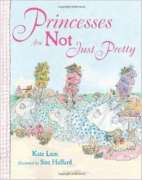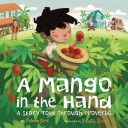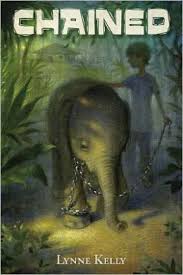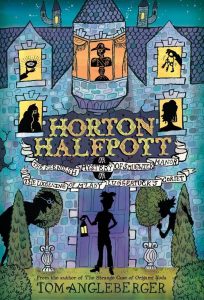
As profound as it is simple, this universal picture book celebrates people all around the world as they do the same things in different ways— work and play, laugh and cry, and wonder why.
See the review at WOW Review, Volume 8, Issue 2

As profound as it is simple, this universal picture book celebrates people all around the world as they do the same things in different ways— work and play, laugh and cry, and wonder why.
See the review at WOW Review, Volume 8, Issue 2

Princesses Mellie, Allie, and Libby are back in another rollicking, royal adventure. When the girls begin to argue about which princess is the prettiest in the land, they decide to hold a contest.

Francisco is finally old enough to journey to the mango grove all by himself to gather the mangoes for a special dinner. But bees swarm the fruit, and Francisco has trouble picking them from the tree. He returns to his father several times, and each time his father shares a different proverb to inspire Francisco to continue trying. “Querer es poder. Where there’s a will, there’s a way!” Finally, Francisco is able to gather some mangoes, and on his way home he stops to visit his uncle, grandmother, and aunt. Francisco shares his mangoes with them, and by the time he gets home he no longer has any! “Es mejor dar que recibir. Sometimes it’s better to give than to receive.” Luckily for Francisco, his generosity does not go unnoticed. “Amor con amor se paga. Love is repaid with love.” Readers are sure to be charmed by this humorous story about problem solving and sharing. The book includes a glossary of Spanish words.

After 10-year-old Hastin’s family borrows money to pay for his sister’s hospital bill, he leaves his village in northern India to take a job as an elephant keeper and work off the debt. He thinks it will be an adventure, but he isn’t prepared for the cruel circus owner. The crowds that come to the circus see a lively animal who plays soccer and balances on milk bottles, but Hastin sees Nandita, a sweet elephant and his best friend, who is chained when she’s not performing and hurt with a hook until she learns tricks perfectly. Hastin protects Nandita as best as he can, knowing that the only way they will both survive is if he can find a way for them to escape.
Alternates between the tales of Angus Seaton, the youngest crew member on a boat recovering bodies from the Titanic wreckage in 1912, and Kevin Messenger, a modern-day class clown in Victoria, British Columbia, who helps lay a victim’s spirit to rest.
 Tom Angleberger’s latest, loopiest middle-grade novel begins when M’Lady Luggertuck loosens her corset (it’s never been loosened before!), thereby setting off a chain of events in which all the strict rules of Smugwick Manor are abandoned. When, as a result of “the Loosening,” the precious family heirloom, the Luggertuck Lump (quite literally a lump), goes missing, the Luggertucks look for someone to blame. Is it Horton Halfpott, the good-natured but lowly kitchen boy who can’t tell a lie? Or one of the many colorful cast members in this silly romp of a mystery.
Tom Angleberger’s latest, loopiest middle-grade novel begins when M’Lady Luggertuck loosens her corset (it’s never been loosened before!), thereby setting off a chain of events in which all the strict rules of Smugwick Manor are abandoned. When, as a result of “the Loosening,” the precious family heirloom, the Luggertuck Lump (quite literally a lump), goes missing, the Luggertucks look for someone to blame. Is it Horton Halfpott, the good-natured but lowly kitchen boy who can’t tell a lie? Or one of the many colorful cast members in this silly romp of a mystery.

As World War I draws to a close in 1918, German citizens are starving and suffering under a repressive regime. Sixteen-year-old Moritz is torn. His father died in the war and his older brother still risks his life in the trenches, but his mother does not support the patriotic cause and attends subversive socialist meetings. While his mother participates in the revolution to sweep away the monarchy, Moritz falls in love with a Jewish girl who also is a socialist. When Moritz’s brother returns home a bitter, maimed war veteran, ready to blame Germany’s defeat on everything but the old order, Moritz must choose between his allegiance to his dangerously radicalized brother and those who usher in the new democracy.
See the review at WOW Review, Volume 5, Issue 1
How much work can one little chicken be? When Leora finds a chicken in her front yard, she imagines keeping it as a pet and gathering eggs for breakfast every morning. But her mother has a very different view. Following a Jewish law that says “finders aren’t keepers,” Mrs. Bendosa is determined that the family should care for the chicken just until its rightful owner returns. Soon, however, one little chicken becomes a flock of chickens, a flock of chickens becomes two goats, two goats become a herd of goats…until—Oh! What a house! Elisa Kleven’s detailed folk art brings Elka Weber’s humorous retelling of a traditional tale to life and promises to leave readers pondering the adage, “finders, keepers.”
In East Africa, a young girl learns that one cannot always judge by appearances as she and her mother visit a market in search of kanga cloth and meet merchants who all claim they have the secret to good chai (tea).

A young African drummer learns the difference between extremes and moderation when the King of the Forest teaches him to say “yes” instead of “no.”